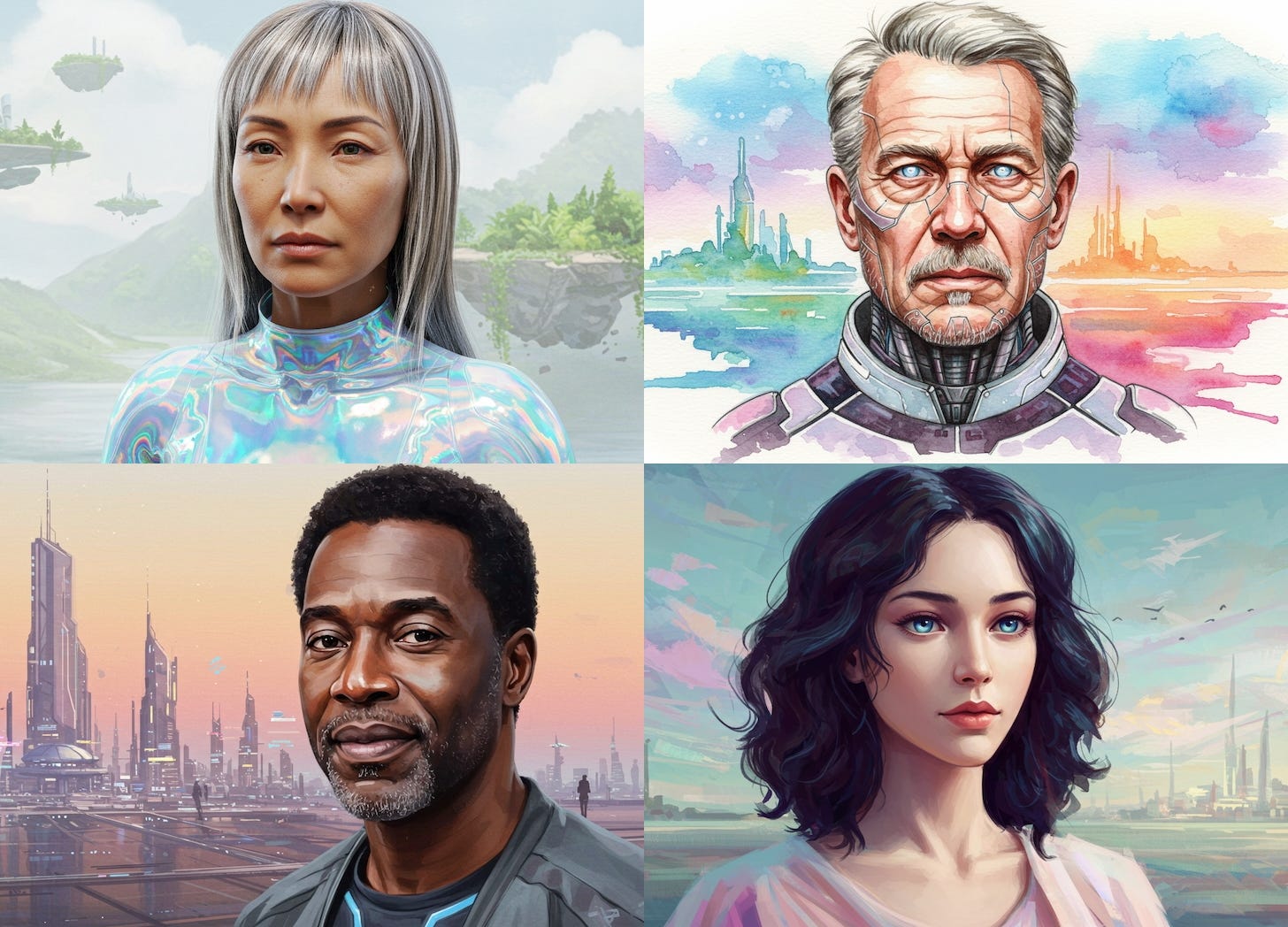Will an AI companion become a character in your personal story?
Better yet, will your best friend be a digital app some day...
I'm someone who tries to see the bright side of life while also wondering whether something evil is waiting for me just around the corner. Such is my attitude when it comes to AI. I like to hear stories about how AI will foster advances in healthcare, accelerate scientific discoveries, or mitigate climate change. On the flip side, stories about how AI will result in job loss, increase economic inequality or amplify lies and misinformation tend to make me nauseous.
But a recent TED Talk had me straddling the fence, with hope on one side, despair on the other. This was a talk delivered by Eugenia Kuyda during TEDAI in San Francisco. (Just so you know, the TED organization has sanctioned a pair of conferences focused solely on AI - one in San Francisco, the other in Vienna) In her talk Eugenia addresses the question, Can AI companions help heal loneliness?
In one sense this isn’t a new topic, as the idea of having digital companions has been around for a very long time, but with machine learning and AI these interactions are becoming more life-like. While AI companions can be utilized in a multitude of ways, Eugenia’s talk hones in on the aspect of alleviating loneliness. Far beyond an assistant that can perform simple tasks, we’re talking about a digital entity that knows us, that can comfort us, and even give us advice. So I’ll leave you to watch her talk…
…while I circle back to the title of this article. As the ability of AI companions reaches parity with humans (lots of debate out there regarding if and when), will you entertain the idea of bringing digital companions into your life? And if so, will they become a real part of your life story? The idea of AI companions helping to alleviate loneliness is a beautiful one, but, as discussed earlier, my mind soon drifts into darker territory.
But what if I told you that I believe AI companions are potentially the most dangerous tech that humans ever created, with the potential to destroy human civilization if not done right? Or they can bring us back together and save us from the mental health and loneliness crisis we’re going through.
With AI companion apps hitting smartphones, how do you know if the person in the supermarket is talking to a real person or their digital pal? If you’re having problems with your relationship, will your significant other rely on their companion for counsel? And since their AI companion knows them best, and may have been programmed to be in alignment with their well-being, will that advice be detrimental to you?

So enough about my warped sense of the future. What about you? Do you see yourself partnering with an AI companion at some point? Not just a smart app that answers a plethora of questions, but one that gets to know you, talks to you, asks you questions, is always there for you and even becomes something akin to a friend? In other words, they become a character woven into your life story.




About a year ago I built my first Caregiver Companion, an AI-based app that provides emotional and moral support to isolated caregivers, as well as information about available resources and logistical tips and tricks that are staples of the Caregiver life. I was a 24/7 caregiver for a number of years, and it can be a grueling, isolating, exhausting experience. Connecting with the right resources at the right time is next to impossible for many people in that situation. Using AI also gets past the hurdle of the convoluted information architectures that usually prevail on these “support“ websites and online resources. You just don’t have time to sit through 15 minutes of a video looking for one useful tidbit at the 15 minute mark, when the person you’re caring for is in the next room, and you’re busy listening for a loud thump, in case they fallen. Having an app like Caregiver Companion probably wouldn’t have made a difference for my partner of 32 years, who passed away a little over two years ago, but it certainly would’ve made a difference for me. It is impossible to overstate the amount of good that tools like this can do. The problem is, actually letting people know they exist. Especially in those extreme isolation situations which are all too common among caregivers.
Spooky when it’s explained this way. Somehow they’re already companions. Custom GPTs definitely so. A creative collaborator is a digital companion of sorts, right? It always seems to want the last word for sure 🤣 but seriously - I don’t feel the need for that on a personal level. I see AI as a great resource and tool more than a companion on an intimate level.